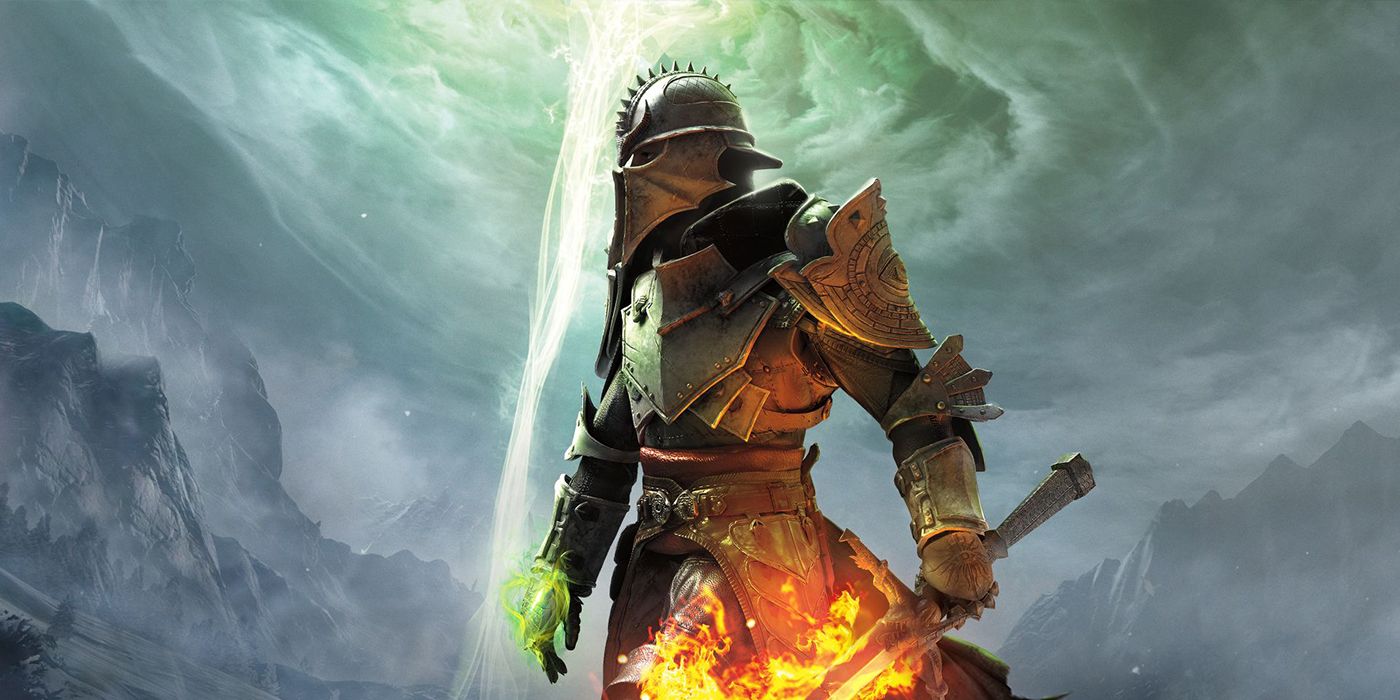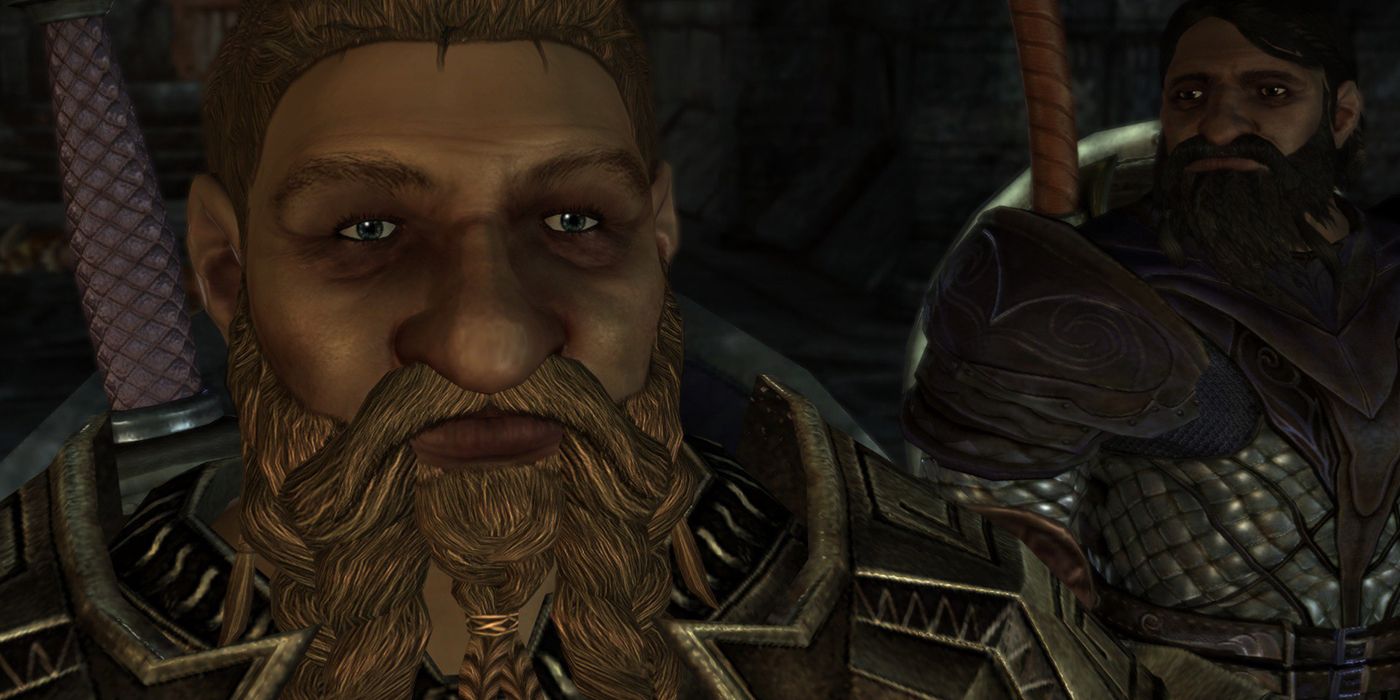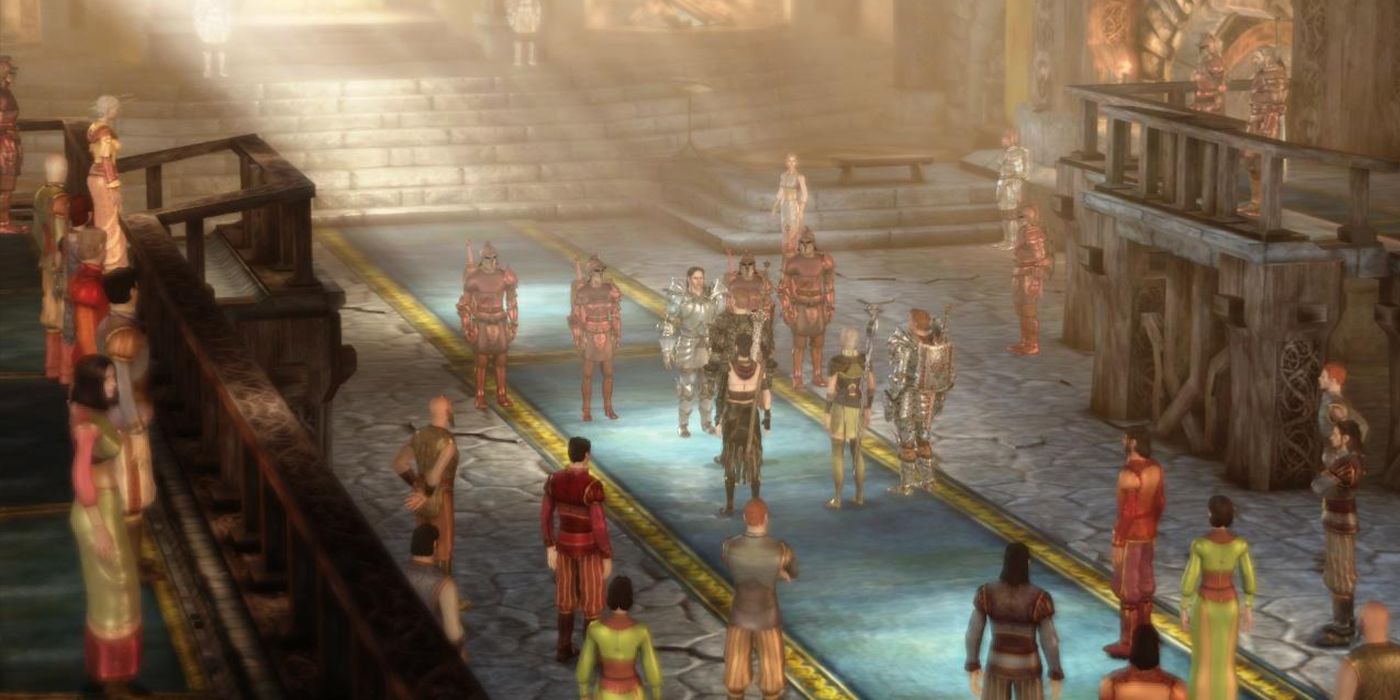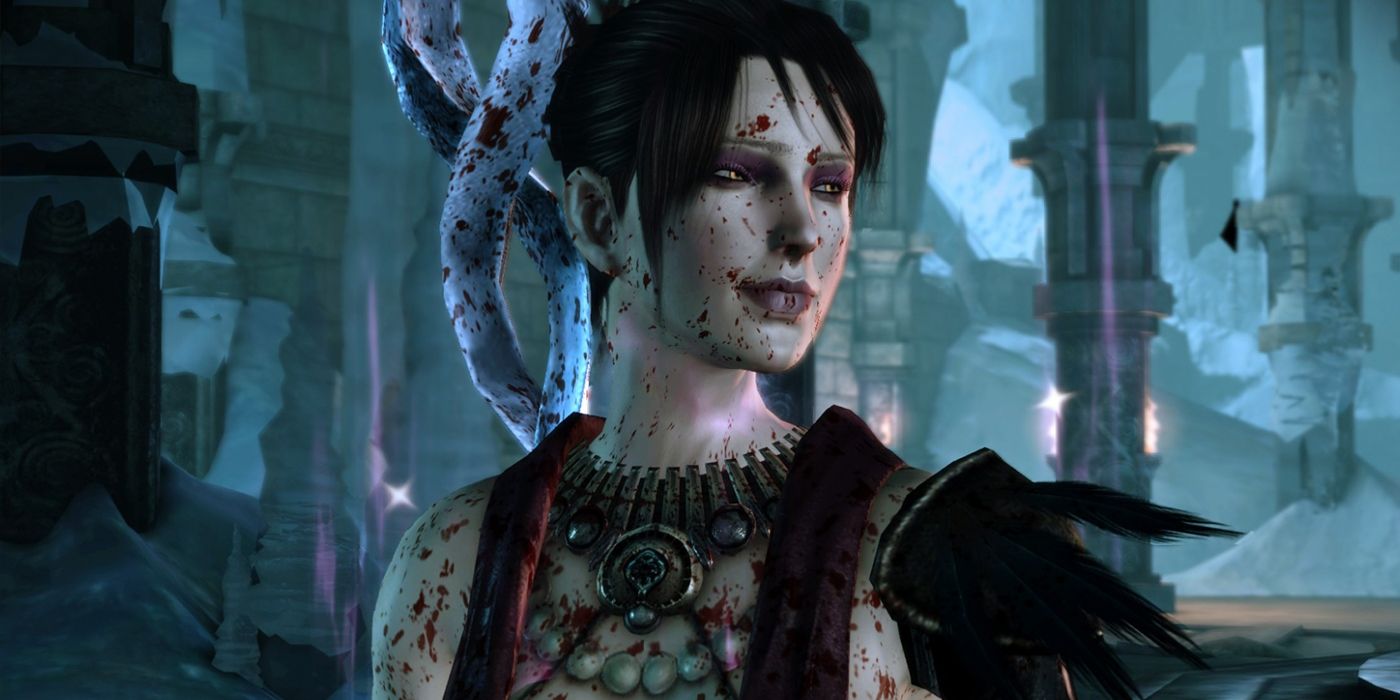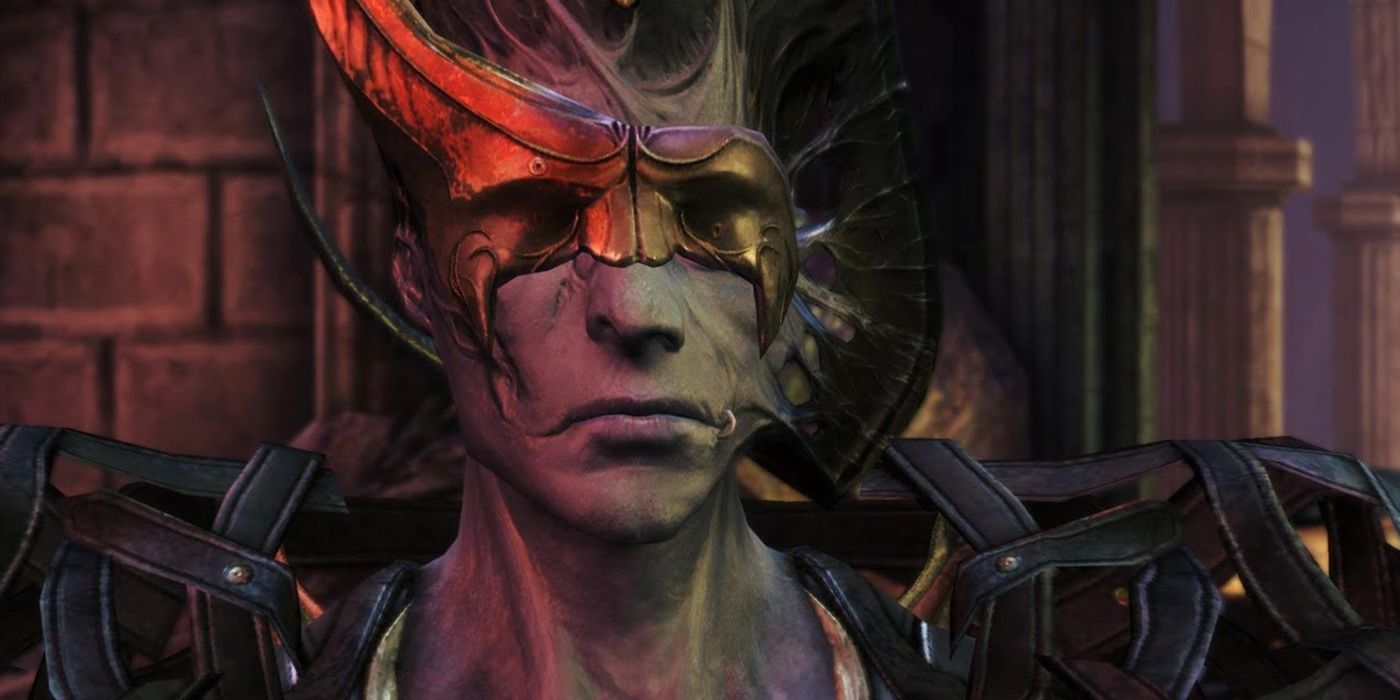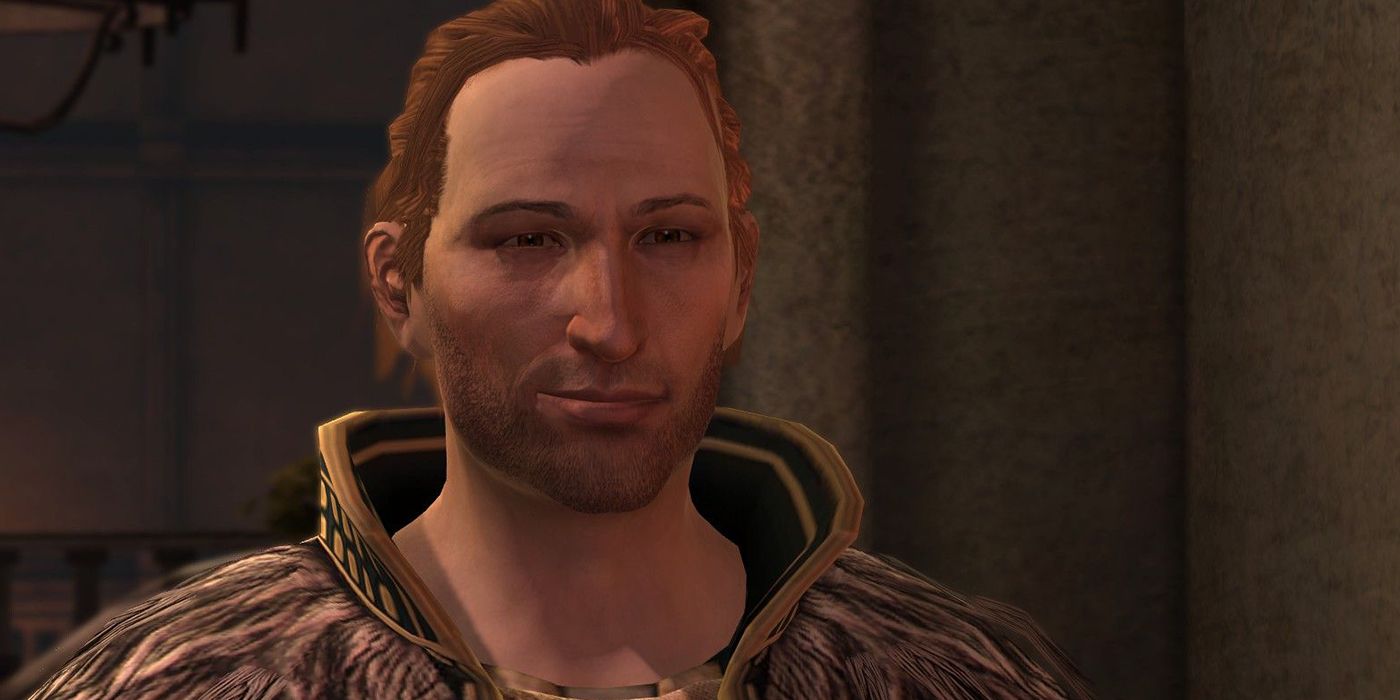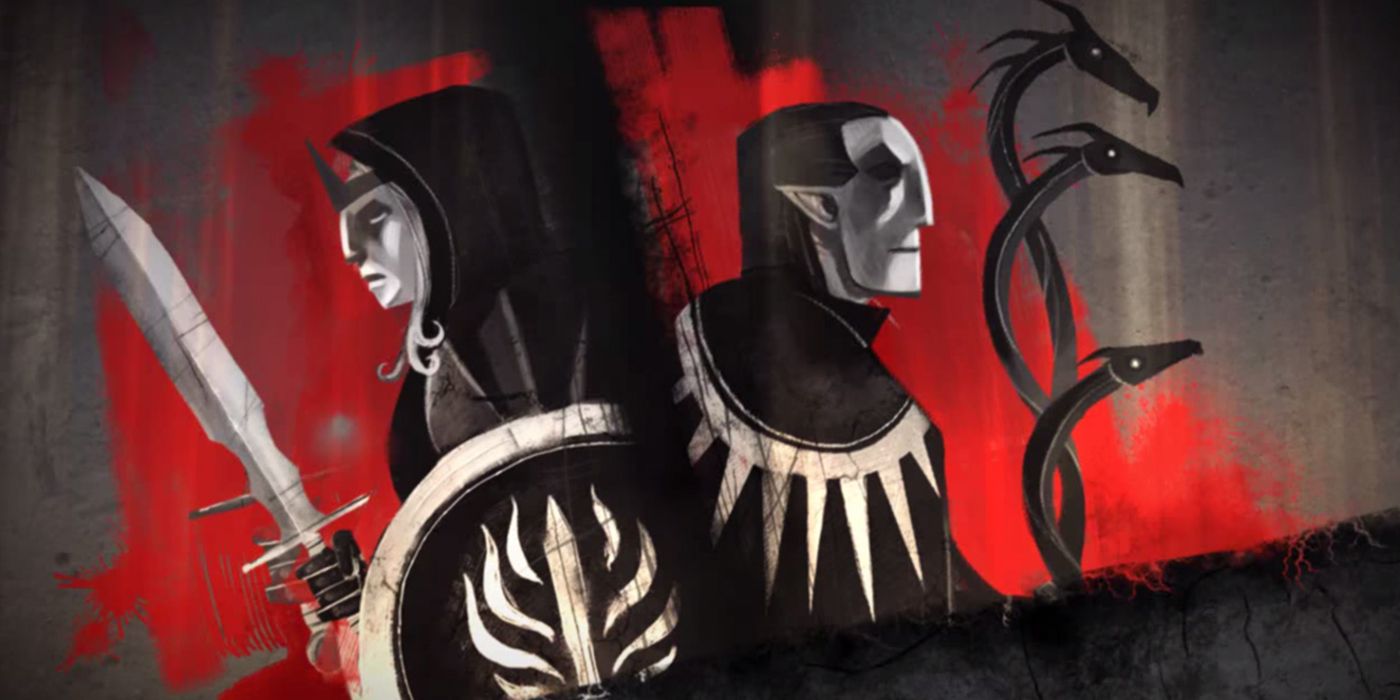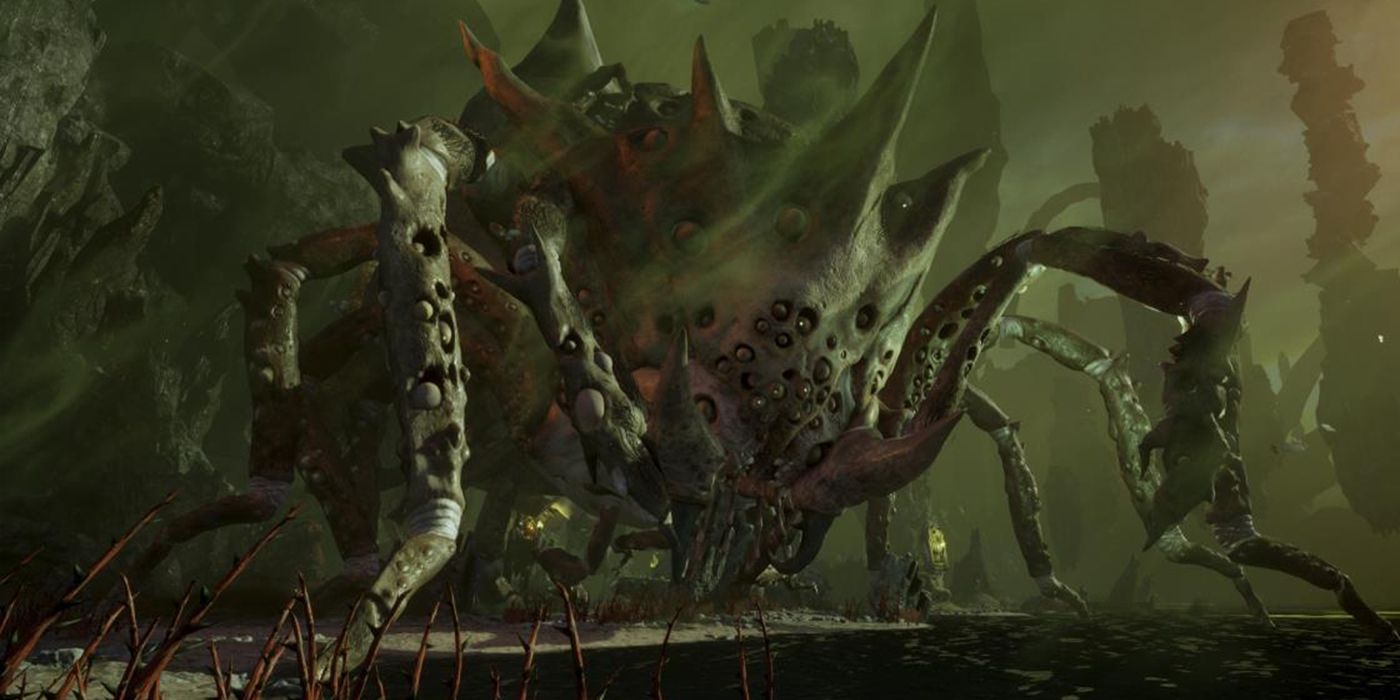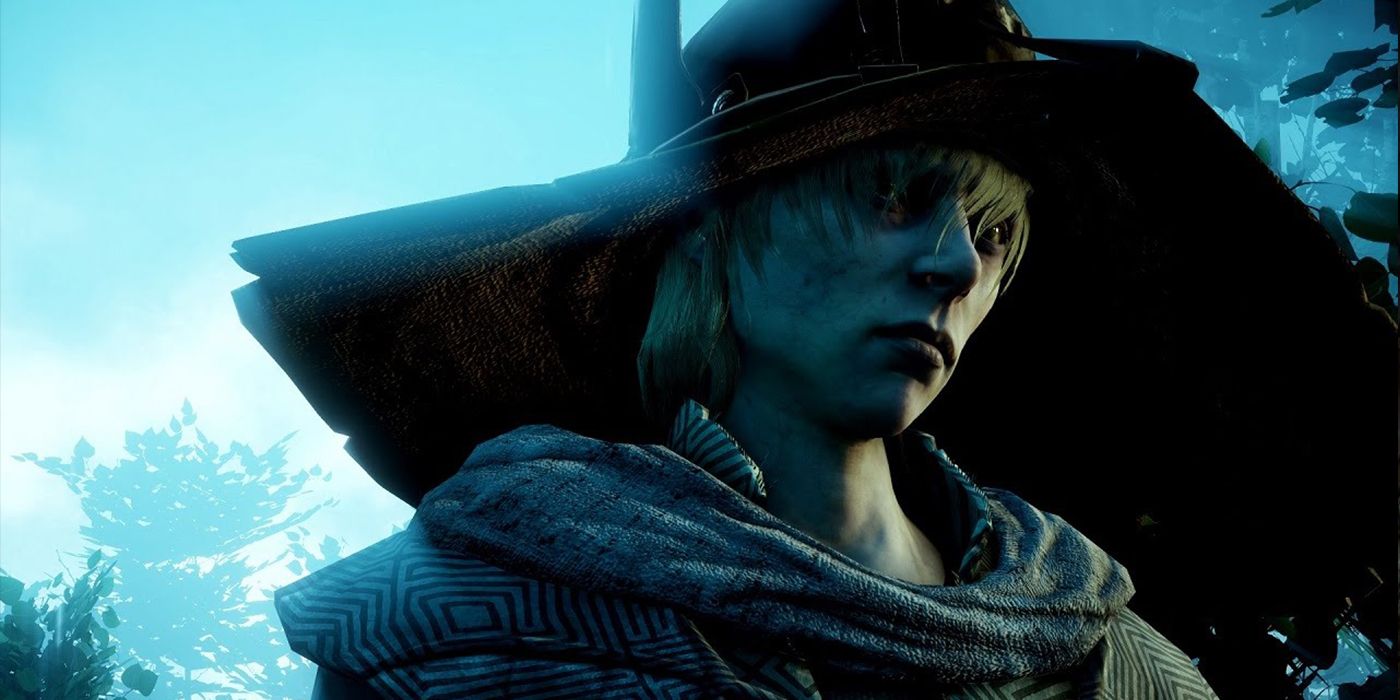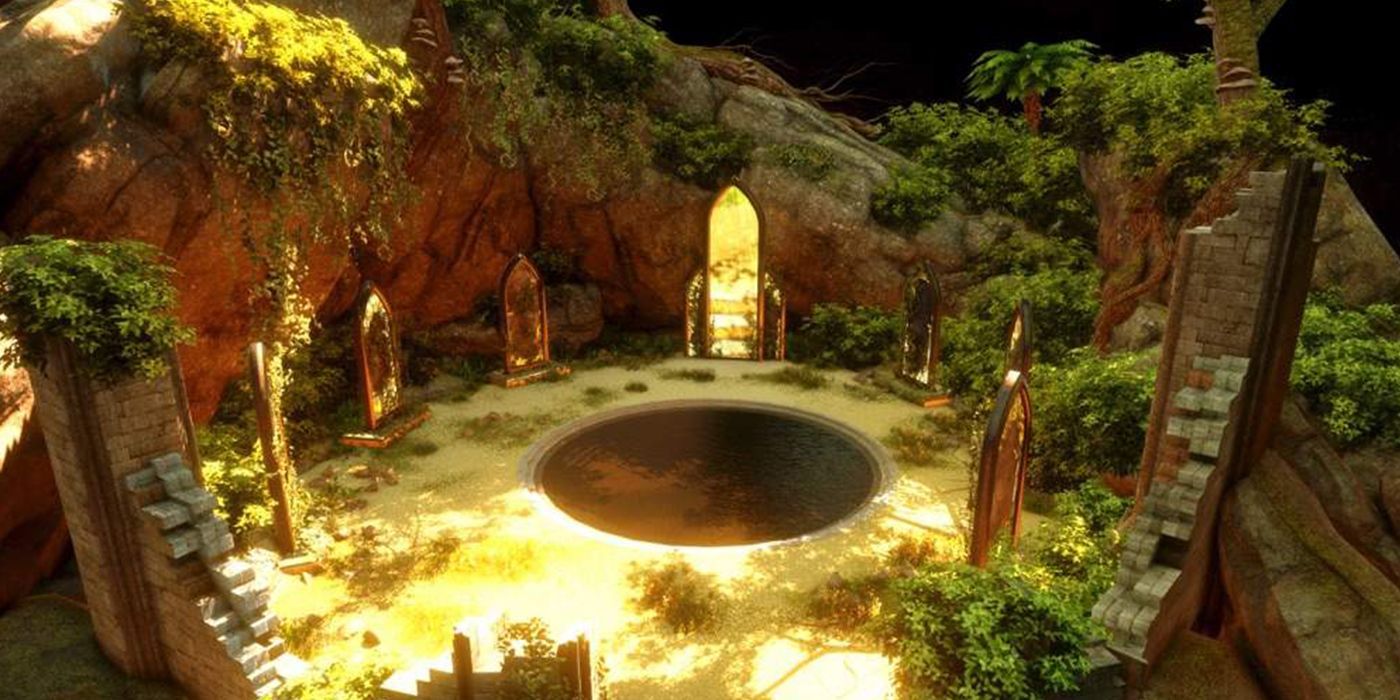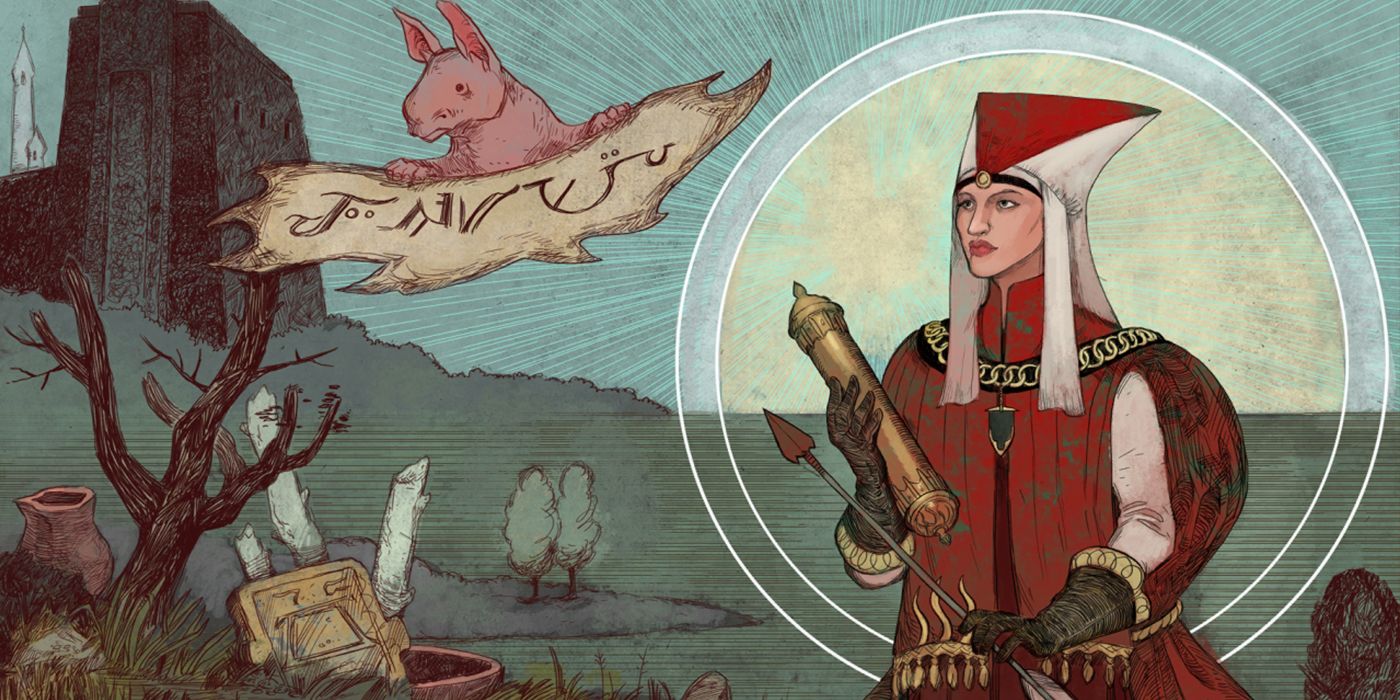With three games, one expansion, and numerous DLC, the plot of the Dragon Age franchise offers many twists and turns for fans to lose themselves in, and myriad different choices to make throughout. However, some of those choices are a little easier to make than others. So we put together a list of only the most difficult and mind-bending decisions that occur throughout the entirety of the Dragon Age games, along with all of their possible consequences.
The King of Orzammar
Of the three treaties needing to be fulfilled in Dragon Age Origins, the dwarven alliance is by far the most tricky, mostly due to the fact that players must decide who is going to rule Orzammar. And maybe that wouldn't be so hard, if players got a better idea of the candidates before allying themselves to one. By the time players set a crown on the head of either Prince Bhelen or Lord Harrowmont, they've got a pretty good idea of their basic identities: Bhelen is a ruthless radical, and Harrowmont the more morally sound traditionalist.
There are two problems in choosing between them; first, it's hard to know even that much about them when players are first roped into doing the bidding of one candidate. Second, it's a choice between a good man whose ideas ultimately aren't best for Orzammar, or a terrible man whose ideas are for the greater good. Bhelen is a cold killer and a cutthroat politician, but his plans to give rights to the casteless and strike back against the darkspawn do, ultimately, help Orzammar more as revealed in the epilogue. Meanwhile, Harrowmont is a decent guy, but his rule brings more of the same for Orzammar.
Furthermore, it is revealed through talk between emissaries in Inquisition that Bhelen is actually more open to working with the Inquisition, while Harrowmont in dealing with riots in the city.
The Landsmeet
Who should rule Ferelden? It's a tough choice, particularly because it's between Alistair, a character with whom players have presumably bonded for the duration of the game, and yet who doesn't want to rule, and Anora, an ambitious politician who wants to rule, but is more of a stranger to players.
It's also tough because of the results: if Alistair is chosen, he'll make a good king, but he'll automatically kill Loghain and imprison Anora, who, as the deeper lore of Dragon Age reveals, is actually a pretty cool character. If Anora is chosen, she'll attempt to execute Alistair, not wanting competition for the throne even though she's already been chosen, which definitely isn't very sportsmanlike. Fortunately, she can be persuaded out of this. Alistair and Anora can rule jointly, which is the best of both worlds, but not ideal for those who romanced Alistair. And, if Alistair isn't hardened by previous actions on the Warden's part, then not executing Loghain will culminate in Alistair becoming a wandering drunk. Yikes.
Morrigan's Dark Ritual
Later in Origins, it's revealed that Wardens can't kill an Archdemon without dying themselves; however, Morrigan offers a way out. Either a male Warden, Alistair, or Loghain (depending on who is in the party at the time) can participate in a dark ritual and father a child with Morrigan, a child that will have the soul of an Old God. The choice is thus: either face the Archdemon without performing the ritual and have either the Warden, Alistair, or Loghain make the ultimate sacrifice, or perform the dark ritual and everyone lives, including Keiran, the child Morrigan eventually has.
The Architect's Plot
There's one tough choice in Dragon Age Origins: Awakening, and that's the one concerning the Architect. In Awakening, it's revealed that the Architect is trying to free darkspawn from the call of the Old Gods by injecting them with the blood of Grey Wardens. He makes an offer to the Warden Commander: let him go and continue his experiments, with the hope of stopping future Blights and eliminating the threat behind the darkspawn's existence.
When considering the offer, the main drawback presented is the one presented by the Mother, Awakening's final boss. When subjected to the Architect's procedure, she went utterly insane and wrought even more havoc on the world above. However, is the future risk worth the potential rewards?
The most frustrating aspect of this choice is the fact that, while there's an immediate consequence of the choice (namely, whether or not players fight the Architect), it's really been unclear what the ultimate consequences of this choice are. Will the Architect succeed? Will letting him live result in more problems, or fewer? Does killing him doom Thedas, or save it? Perhaps the mysterious and presumably upcoming Dragon Age 4 will answer those questions, but for now, players just have to use their best judgement and see what happens!
Anders' Fate
Now let's move on to Dragon Age 2, and the actions of one Anders the rebel Grey Warden. At the end of the game he goes and blows up Kirkwall's Chantry, with Grand Cleric Elthina inside of it, causing mayhem in the streets and ultimately a rebellion of mages as templars attempt to carry out the Right of Annulment on all mages for Anders' crime. All of that will happen whether or not players carry out justice for his crimes, so it's really up to players' own sense of right and wrong.
Players can kill Anders right then and there for what he did. If Sebastian is in the game, that's what he'll want, and as a result he'll be more open and forgiving towards Kirkwall in Inquisition. Players can also let Anders live, either banishing him for good or allowing him to remain and fight alongside Hawke and companions--the latter being something that most Anders-romancers probably did. Banishing Anders means that he lives, though he will no longer be part of Hawke's group for the rest of the game. Allowing him to stay will allow players who romanced him to complete the romance arc, and he'll be present for the remainder of the game. Later in Inquisition, Varric can comment on Anders' fate, whatever players choose.
Mages or Templars
As a result of Anders' actions, Meredith (who has lost her mind at this point) decided to execute every mage in Kirkwall for his crimes, even though they're innocent. As such, players can decide to side with the templars or the mages, cleansing Kirkwall of demonic influence and either defending the Gallows from templars or assaulting it to get to the mages. Strangely, for such a momentous event and decision, it has little influence in the long run; mages across Thedas will still rebel, and so will templars, culminating in the events of Inquisition. The main impact of this choice is on Hawke themselves, and on their companions.
Some of Hawke's companions are more heavily opinionated on which side Hawke should take, and if they don't have enough friendship built up with Hawke, those companions will side against them. So, the main thing to keep an eye on when making this decision is the friendship/rivalry meter that Hawke has with each of their companions.
Here Lies the Abyss
Jumping to Dragon Age: Inquisition, the main quest "Here Lies the Abyss" takes the Inquisitor, Hawke, and a Grey Warden deep into the Fade. During the course of the quest, the Inquisitor has to make a choice: sacrifice Hawke, or the Grey Warden (which, depending on choices made in previous games, will either be Alistair, Stroud, or Loghain). Naturally, the hardest decision is if the player is choosing between Hawke and Alistair; choosing between two fan-favorites is fairly gut-wrenching. Plus, leaving Hawke behind in the Fade will leave poor Varric heartbroken, while leaving behind Alistair, especially a romanced one, can't be easy for fans of Origins.
Cole: Spirit or Human?
While this wasn't a world-changing quest decision, the choice to make Cole more spirit-like or more human was still one that had many players scratching their heads. During Cole's quest, Varric advocates for making him more human, while Solas is gunning for making him more of a spirit, while Cole himself honestly seems not to lean either way until the Inquisitor makes the final call.
As with many of these choices, there's no right or wrong, just differences: human Cole becomes a little more "real" and understands more human concepts, even finding romance with the bard Maryden in Trespasser, while spirit Cole gets more distant and continues to grow his powers. And, while he doesn't find romance himself, he does get Krem and Maryden together. So, it works out no matter what players choose to do.
Drinking From the Well of Sorrows
Drinking from the Well of Sorrows in the quest "What Pride Had Wrought" could have future consequences in Dragon Age 4 that we still don't know about. However, there are enough consequences in Inquisition to go over; the Well of Sorrows is full of mysterious power belonging to Mythal, the elven god of justice, and players really aren't given too much more information about it before making a choice, only being told that drinking from the well will bind them to Mythal. Meanwhile, Morrigan is there and very much wants to be the one to drink, instead of the Inquisitor.
So who should drink? Well, as stated above, drinking does bind the drinker to Mythal, and gives her the power to take over them whenever she pleases. If Morrigan drinks from the well, then she's given the power to turn into a dragon and helps players defeat Corypheus at the end of the game. If the Inquisitor drinks, then they're given the power to tame a dragon into helping, while also subjected to hearing strange whispers in their minds. And, as we've seen from the Inquisition epilogue, it's possible that drinking from the Well now means that the drinker is bound to Solas instead.
The Next Divine
Finally, there's the choice of who should be the next Divine: Cassandra, Leliana, or Vivienne. Naturally, fans are pretty divided on who the best choice is, here.
Cassandra is the middle-ground choice. She's steady and dependable, but it's her weakness as much as her strength: she keeps things stable, but nothing really changes in a world that desperately needs a change. Leliana, meanwhile, is that change; she's determined to change Thedas for the better, giving more freedoms to the people who need them, but that creates division between her and the more traditional people who don't agree. Meanwhile, Vivienne elects for change in the opposite direction. While she gives the Circle a political voice, she also maintains it and keeps it on an ever-tightening leash--which, as we know, is part of what caused Inquisition's problems in the first place.

